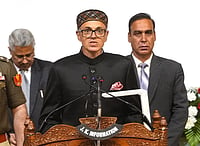A Statement in Support of the Open Letter by Vikram Seth andOthers
Add My Voice
It is surprising that independent India has not yet been able to rescind the colonial era monstrosity in the shape of Section 377, dating from 1861

I have read with much interest and agreement the open letter of Vikram Sethand others on the need to overturn section 377 of the Indian Penal Code. Eventhough I do not, as a general rule, sign joint letters, I would like, in thiscase, to add my voice to those of Vikram Seth and his cosignatories. Thecriminalization of gay behaviour goes not only against fundamental human rights,as the open letter points out, but it also works sharply against the enhancementof human freedoms in terms of which the progress of human civilization can bejudged.
There is a further consideration to which I would like to draw attention. Gaybehaviour is, of course, much more widespread than the cases that are brought totrial. It is some times argued that this indicates that Section 377 does not doas much harm as we, the protesters, tend to think. What has to be borne in mindis that whenever any behaviour is identified as a penalizable crime, it givesthe police and other law enforcement officers huge power to harass and victimizesome people. The harm done by an unjust law like this can, therefore, be farlarger than would be indicated by cases of actual prosecution.
It is surprising that independent India has not yet been able to rescind thecolonial era monstrosity in the shape of Section 377, dating from 1861. That, asit happens, was the year in which the American Civil War began, which wouldultimately abolish the unfreedom of slavery in America. Today, 145 years later,we surely have urgent reason to abolish in India, with our commitment todemocracy and human rights, the unfreedom of arbitrary and unjustcriminalization.




















